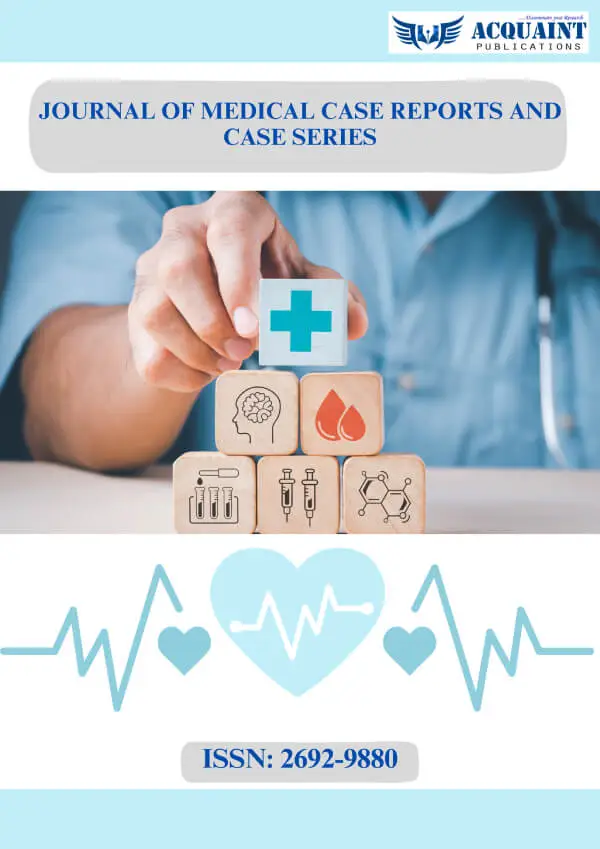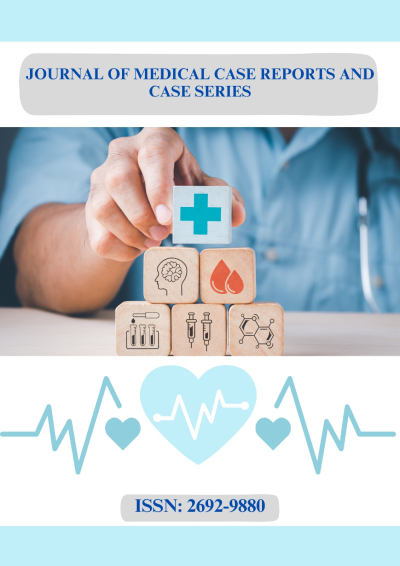Dr. Dweepala P D K Priya Darshini1, Dr. Amit Sharma2, *, Dr. Rupak Singla3, Dr. Neeta Singla4
1Former DNB Resident, NITRD
2Chest Physician, NITRD
3Senior Chest Physician & HOD, NITRD
4Research Officer, NITRD
*Corresponding Author: Dr. Amit Sharma, Chest Physician, NITRD
Abstract
Bedaquiline (BDQ) has emerged as a major drug for the treatment of Multi-Drug Resistant (MDR) Tuberculosis (TB), especially with additional Second Line Injectables (SLI) and/or Fluoroquinolone (FQ) resistance. The National Institute of Tuberculosis and Respiratory Diseases (NITRD) was one of the sites for the initial launch of BDQ. In our study, we have tried to assess the treatment outcome of 43 patients who received BDQ containing regimen in our Institute. More than 2/3rd of the patients (69.8 %) had a favorable outcome. Poor or unfavourable outcomes were mostly associated with factors like elderly age, increased extent of lung involvement and presence of co- morbidities like diabetes, alcoholism, and smoking.
Introduction
Tuberculosis is one of the major health problems worldwide including in our country, caused by Mycobacterium tuberculosis. Three countries in the world accounted for around half of the world’s cases of MDR/RR-TB: first in India (24 %), second in China (13 %) and the Russian Federation (10 %) [1]. A total of 9% of MDR-TB cases were found to have the most resistant TB called extensively drug-resistant TB (XDR-TB) [2]. In a recent meta-analysis conducted on XDR-TB patients, they have demonstrated treatment success only in 44 % of patients, but the mortality was found to be in the range of 14 % to 27 % [3]. Hence there is an acute requirement for better treatment options for control of this deadly disease.
Bedaquiline is a newly introduced anti-tubercular drug over the past few years for the treatment of drug-resistant tuberculosis. It belongs to the diarylquinoline class that efficiently inhibits the adenosine triphosphate synthase enzyme of Mycobacterium tuberculosis. Factors associated with the treatment outcome of the Bedaquiline containing regimen are under study now. Identification of such factors may guide us for the treatment of drug-resistant tuberculosis with the Bedaquiline based regime [4]. The main aim of this study was to identify the factors associated with the treatment outcome of the Bedaquiline containing treatment regimen.
Materials and Methods
The patients started on Bedaquiline containing treatment regimen from July 2016 to March 2017 at the National Institute of Tuberculosis and Respiratory Diseases (NITRD), an apex tertiary care centre for management of TB and Respiratory Diseases were enrolled and followed up for 2 years in the present study. 43 patients were enrolled under this study during that time period. Various factors like demographic, clinical, radiological, microbiological, and other factors were studied about the outcome of the Bedaquiline containing treatment regimen.
Results
Demographic factors like age, gender was not found to be associated with the outcome of the Bedaquiline containing regimen. We have found in this study that the most affected age group by drug-resistant tuberculosis is below 40 years comprising around 86 % in our study group. Patients with low BMI were found to have favourable outcomes with this Bedaquiline containing treatment regimen. The severity of the disease as per the extent of lung involvement as seen on the chest x-ray was found to be associated with the probability of having an unfavourable outcome.
Co-morbid conditions like Diabetes, Alcoholism, Smoking were found to have an association with unfavourable outcome. Culture conversion time, type of TB, whether Pulmonary or Extrapulmonary, type of resistance, second line injectables (SLI) and/or Fluoroquinolone (FQ) was not found to have any association with the treatment outcome of patients on Bedaquiline containing regimen. Sputum smear grading was not significantly associated with treatment outcome.
Out of the 43 patients enrolled in the study, 69.8 % had a favourable outcome as a cure. The remaining 31.2 % had unfavourable outcome like death, loss to follow-up and regimen changed. The unfavourable outcome was mostly associated with the factors like old age, increased severity of lung involvement as visualised on the chest radiograph, long duration of the history of anti-tubercular drug therapy, co-morbidities like diabetes/smoking/alcoholism and treatment interruptions/default. Patients belonging to low socio- economic status had good outcomes in this study who cannot afford costly treatments because Bedaquiline was provided by the government free of cost under the PMDT programme making this drug available to all the eligible patients in the society.
In this study, we found more than 70 % of culture conversions within the first 2 months of initiation of the Bedaquiline containing regimen. Out of 43 patients, 38 patients were culture converted at the end of the intensive phase accounting for 88.3 % of culture conversions totally. We observed an inverse relationship between a few factors like smoking, the severity of lung involvement, treatment interruptions and the outcome of the Bedaquiline containing treatment regimen.
Discussion
This is a long-term prospective study evaluating the factors affecting the outcome of Bedaquiline containing regimen? This study has included many factors affecting Bedaquiline treatment regimen outcome while other studies were focusing on a few factors in each study. As this study was done in a tertiary care institute which is a National Institute, people from various places that is mixed populations were studied about the response to Bedaquiline. While other studies on Bedaquiline were mainly focusing on the outcome of the regimen containing this drug, we have also studied the factors which through few interventions can improve the outcome of the Bedaquiline regimen. We had a smaller study population as it is a long-term study, and we were doing this study based on a particular time period. In our study, we could not study the association of HIV seropositivity with the outcome of Bedaquiline containing treatment regimen because in our study population there were no HIV seropositive patients. Bedaquiline is well tolerated and demonstrated both safety and efficacy in HIV co-infected patients [5]. One of the major contributions to the poor outcomes was death among patients. However, most of the patients under study who died were already culture converted. This may suggest that the deaths might have occurred due to some other reasons than severity/progression of the disease. However, this could not be established by verbal autopsy or other measures.
Conclusions
Bedaquiline containing treatment regimen achieved a 69.8 % cure rate in our study. Culture conversions were achieved within 2 months in more than 70 % of the study population and overall culture conversion was around 88.3 %. We analysed various factors affecting the outcome of this regimen. Poor or unfavourable outcomes were mostly associated with the factors like elderly age, increased severity of chest x-ray involvement, long duration of the history of antitubercular drug therapy, co-morbidities like diabetes/smoking/alcoholism, treatment interruptions. Therefore, education against smoking/alcoholism, control of diabetes, ensuring treatment regularity are some of the interventions which may improve the outcome of Bedaquiline containing regimen.
References
- WHO | Global tuberculosis report 2018 [Internet]. WHO. [cited 2019 Jun 25].
- MDRFactSheet2012.pdf [Internet]. [cited 2019 Jun 25].
- Jacobson KR, Tierney DB, Jeon CY, Mitnick CD, Murray MB (2010) Treatment outcomes among patients with extensively drug-resistant tuberculosis: systematic review and meta-analysis. Clin Infect Dis. 51(1): 6–14.
- Matteelli A, Carvalho AC, Dooley KE, Kritski A (2010) TMC207: the first compound of a new class of potent anti- tuberculosis drugs. Future Microbiol. 5(6): 849–58.
- Diacon AH, Pym A, Grobusch MP, de los Rios JM, Gotuzzo E, et al. (2014) Multidrug-resistant tuberculosis, and culture conversion with bedaquiline. N Engl J Med. 371(8): 723–32



